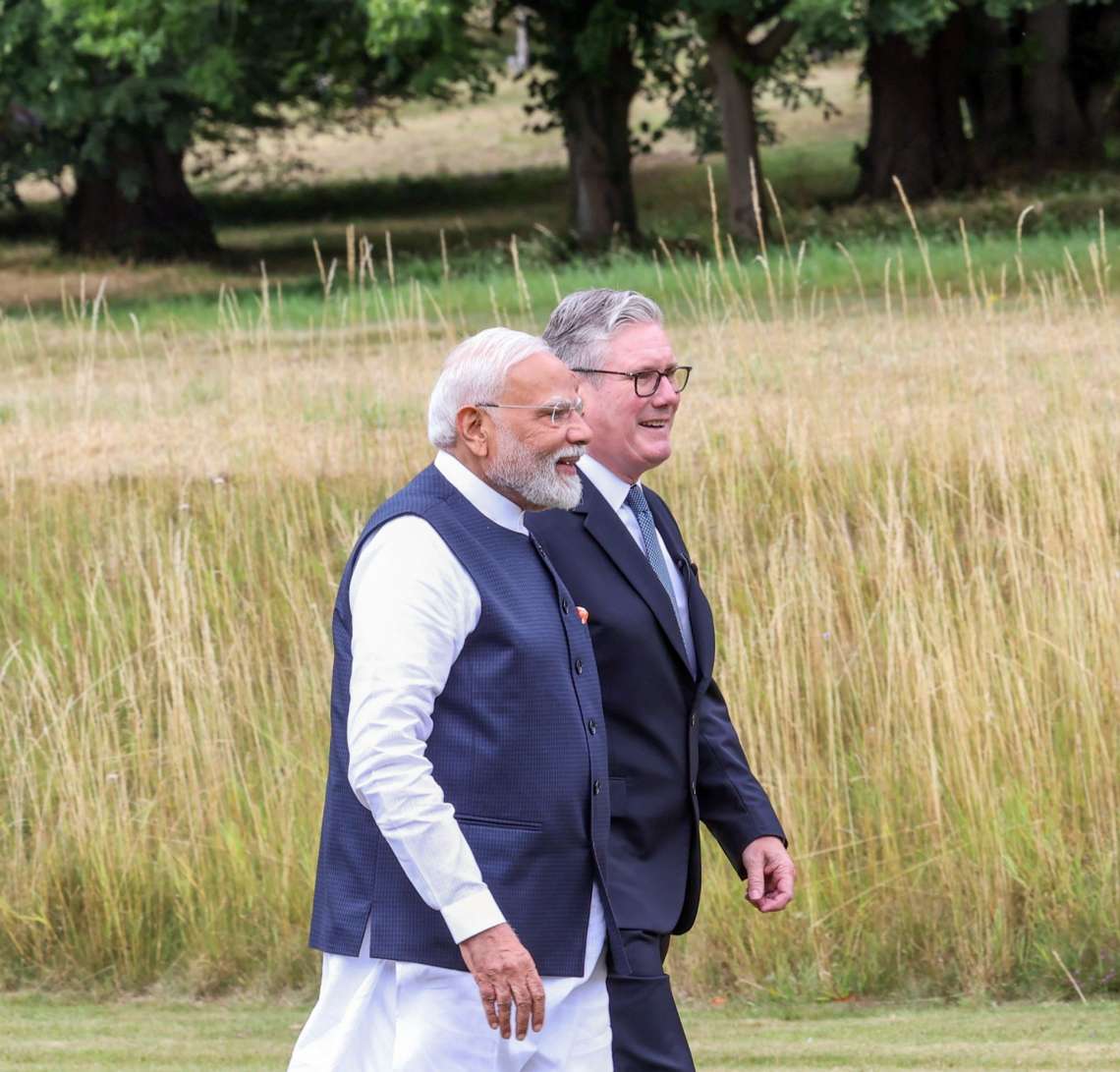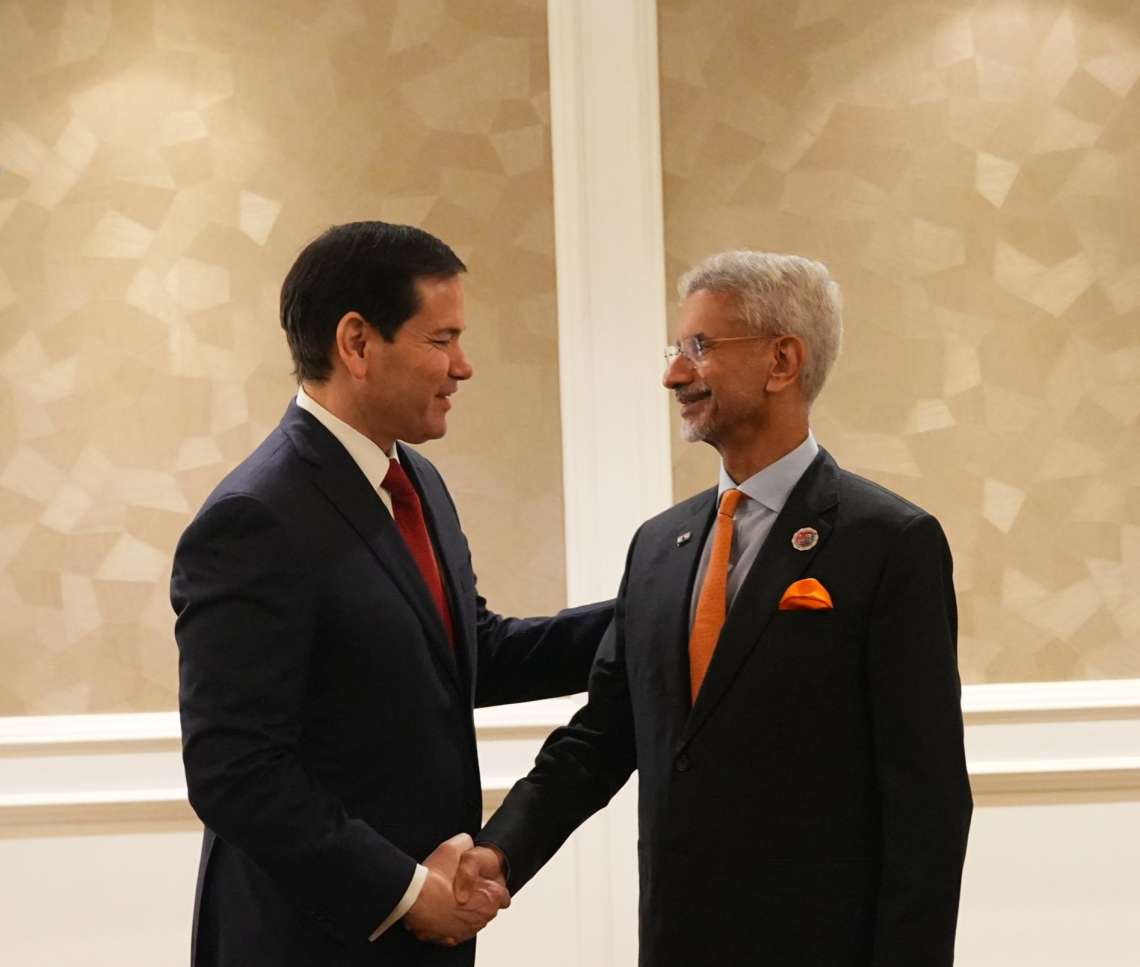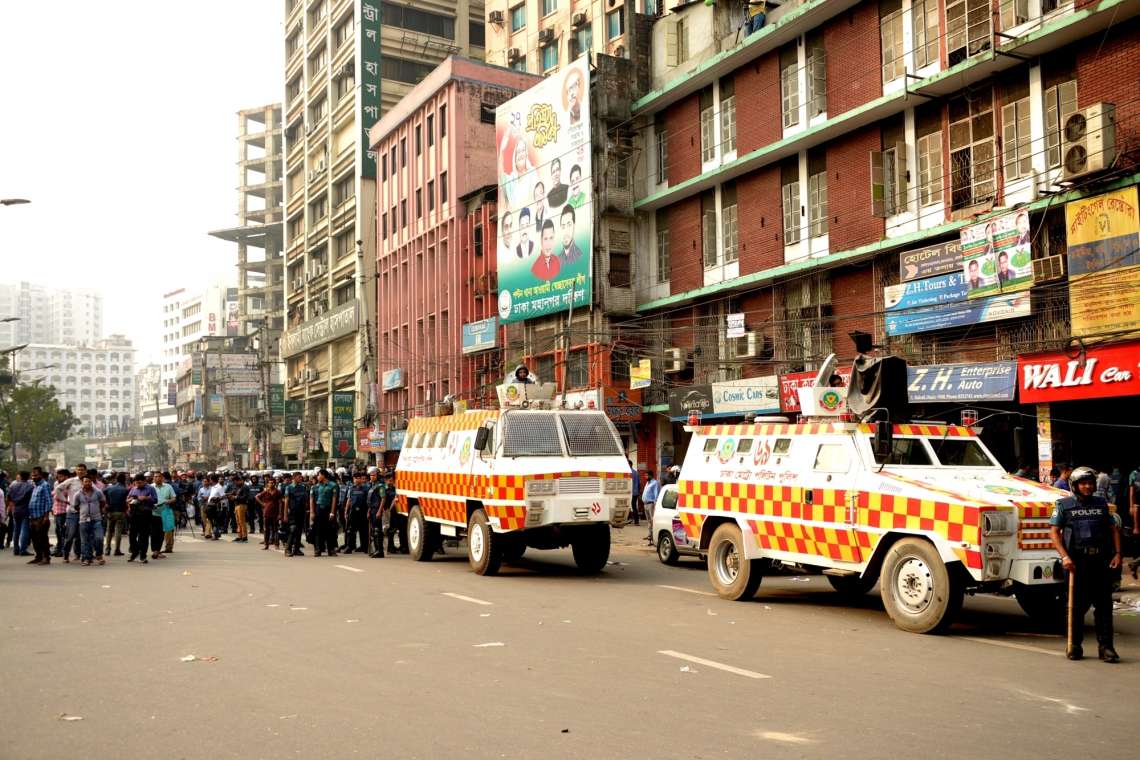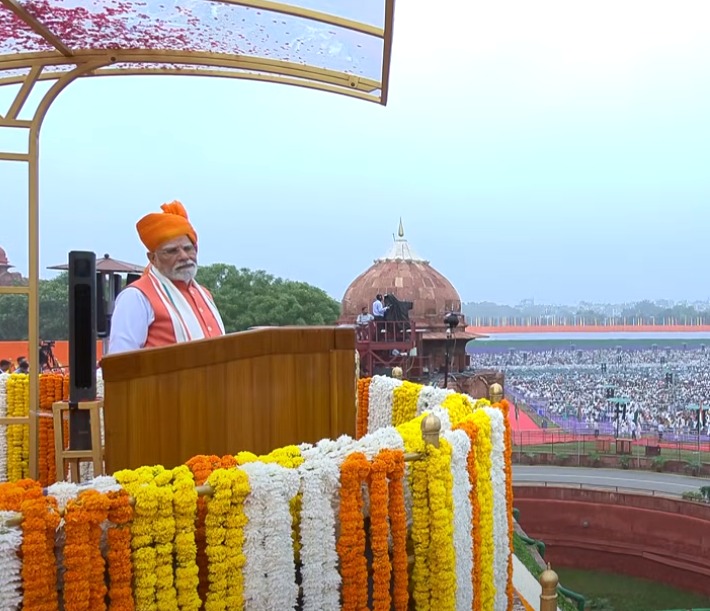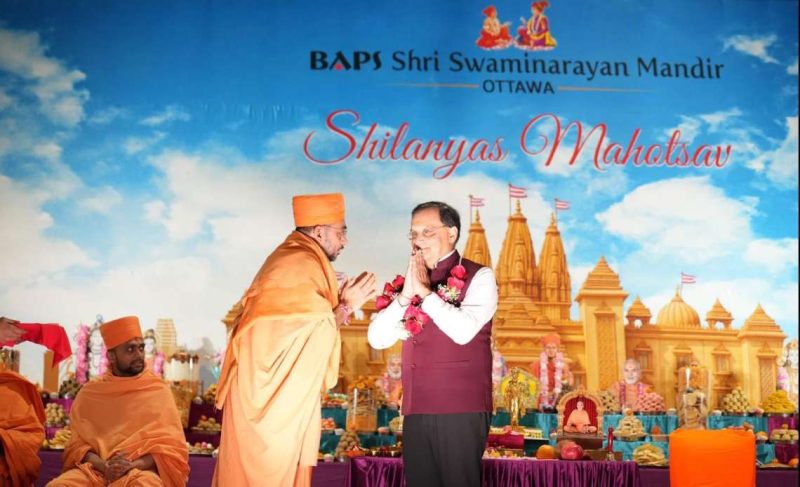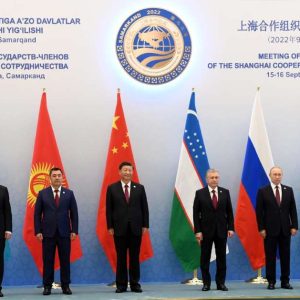Some 40,000 high-value tenders worth £38bn from federal ministries will now be open to bidding for UK businesses in strategic sectors like transport, green energy and infrastructure – areas which have thus far been heavily protected from foreign competition…reports Asian Lite News
The India–UK free trade agreement signed last month has opened a vast new frontier for British companies, granting them unprecedented access to India’s tightly guarded government procurement market in a move hailed by trade experts as a major policy shift.
The Narendra Modi government’s decision will allow UK suppliers to bid for an estimated 40,000 high-value tenders worth £38 billion from federal ministries in strategic sectors such as transport, green energy and infrastructure. These areas have long been protected from foreign competition, with contracts largely reserved for domestic firms.
Ajay Srivastava, co-founder of the Delhi-based Global Trade Research Initiative (GTRI), described the move as “far greater” than the concessions India had made in earlier trade pacts, including its agreement with the United Arab Emirates. “It sets a new benchmark,” he said.
Under the deal, UK bidders for specified Indian government contracts will be treated almost on par with Indian suppliers. They will gain real-time access to information on forthcoming tenders and be eligible to supply goods made with as little as 20% UK input, giving them flexibility to source up to 80% of parts or raw materials from third countries while still qualifying for procurement preferences.
The minimum contract threshold for foreign bidders has also been sharply lowered. According to Srivastava, this means British firms can now compete for a wider range of lower-value projects – from rural roads and solar panels for schools to IT systems for government offices – that were previously beyond their reach.
However, the new opportunities come with challenges. Dr Arpita Mukherjee of the Indian Council for Research on International Economic Relations noted that UK companies will be classified as “Class-II local suppliers”, while Indian firms retain “Class-I” status, giving domestic players an in-built advantage.
Price competitiveness is another hurdle. “UK companies tend to have higher prices than Indian companies,” Mukherjee said, warning that this could limit their success in a cost-sensitive procurement environment.
Beyond competition and pricing, experts caution that structural issues in India’s public procurement system could dampen the benefits of the deal for British firms.
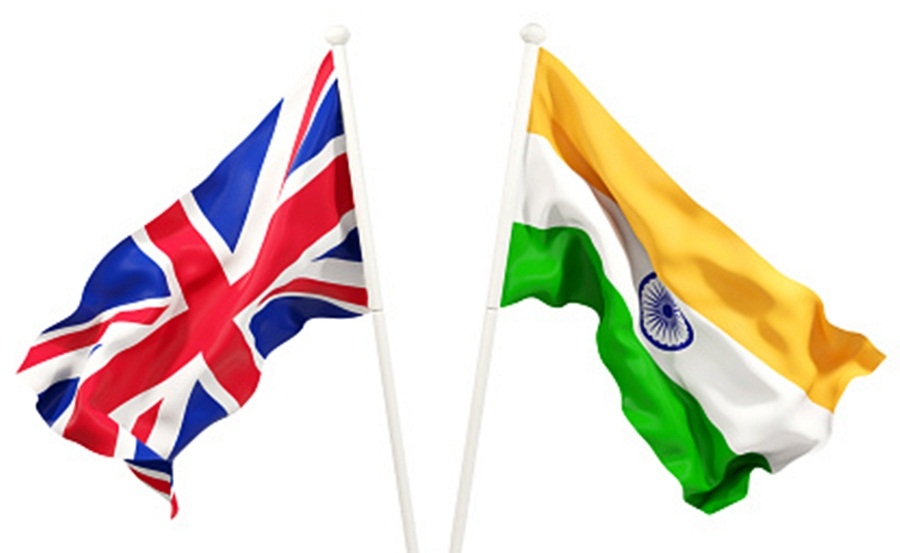
Srijan Shukla of the Observer Research Foundation pointed to chronic problems such as delayed payments and weak contract enforcement. “A study on procurement by India’s central public sector enterprises from 2017 to 2020 found that pending payments to suppliers often exceeded the total average procurement in a year,” he said.
These payment delays, Shukla noted, have driven many small Indian businesses out of the procurement market, creating opportunities for larger domestic players but adding risk for newcomers. India’s poor performance in the World Bank’s 2020 Doing Business rankings – 163rd out of 190 countries on contract enforcement – underlines the scale of the challenge.
While India has made progress with transparency through portals such as the Government e-Marketplace and the Central Public Procurement Portal, as well as a new online dispute resolution system, “payment discipline by government entities continues to remain a challenge,” Shukla said.
Mukherjee added that although the India–UK trade pact stresses transparency, it sidesteps key issues such as outstanding dues, enforcement of contracts and penalties for breaches. Furthermore, it excludes dispute settlement provisions under the Comprehensive Economic and Trade Agreement (CETA) for the first four years after implementation – potentially leaving companies with limited recourse in the event of a disagreement.
Both Mukherjee and Shukla emphasised that success in India’s procurement market will require British firms to adapt to its unique operating environment.
“Doing business in India is an acquired skill,” Shukla said. “Over time, UK companies will have to learn the art of winning public tenders and navigating complex regulations.”
Despite these hurdles, analysts say the policy shift sends a powerful signal about India’s willingness to open up previously protected sectors. It also marks a significant step towards aligning its procurement policies with global norms – a move that could encourage more foreign participation and improve standards.
According to GTRI, the inclusion of such extensive procurement clauses is a relatively recent phenomenon in India’s trade agreements, reflecting both a catch-up effort and growing confidence in the competitiveness of its domestic firms. “It shows the government’s belief that Indian companies can compete with global players, both externally and at home,” Srivastava said.
Observers believe the concessions to the UK may also foreshadow similar openings in future trade negotiations, including the high-stakes talks currently under way with the United States.
If foreign participation increases, it could generate a competitive push for greater efficiency and accountability in India’s procurement process. “The hope is that more foreign players will help standardise tendering and contract enforcement to global standards,” Shukla said.
For British companies, the opportunities on offer are substantial – but so are the risks. The agreement promises access to one of the world’s largest and most diverse procurement markets. Yet success will depend on careful strategy, competitive pricing and the patience to navigate a complex system still evolving towards full transparency and reliability.


